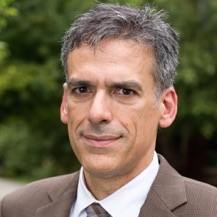District IV Board Council BOARd Statement
(Spring 2016)


cross-linked together through ACS, makes up a personal and professional chemistry network that we can leverage to advance our careers, each other, and chemistry as a whole. Through ACS, we can celebrate that chemistry has a human side, and it must be diverse. The challenge lies in continuing to adapt our structure and our offerings to best serve the broad needs of our fellowship. This is a challenge that cannot be solved once and for all because we, and the world around us, are constantly changing. The opportunity for advancing the interaction and support of chemical scientists like you is what drove me to volunteer to serve as district director, and it is why I would like to continue for another term.
I have focused on three of ACS’s core values: the value proposition of ACS membership, education of the chemical workforce, and science advocacy. The diversity in age, experience, background, worldwide location, race, ethnicity, gender identity and orientation, and ability that makes our fellowship stronger must be addressed through these values and everything we do. My championing of diversity equity on task forces and boards and as the director of OXIDE (Open Chemistry Collaborative in Diversity Equity) demonstrates my strong commitment to advancing these critical issues within the chemical workforce. As a director, I have spoken with many of you at regional and national meetings, and I wrote two comments inI have focused on three of ACS’s core values: the value proposition of ACS membership, education of the chemical workforce, and science advocacy. The diversity in age, experience, background, worldwide location, race, ethnicity, gender identity and orientation, and ability that makes our fellowship stronger must be addressed through these values and everything we do. My championing of diversity equity on task forces and boards and as the director of OXIDE (Open Chemistry Collaborative in Diversity Equity) demonstrates my strong commitment to advancing these critical issues within the chemical workforce. As a director, I have spoken with many of you at regional and national meetings, and I wrote two comments inC&EN—July 14, 2014, pg. 45 and August 24, 2015, pg. 40,—promoting diversity equity and inclusive excellence.
ACS remains as relevant and necessary today as when it was founded, despite the flattening in accessing information through the internet. As members, you and I are voting affirmatively with our wallets, declaring that chemistry and our network are important. Through this collective action, we are empowering ourselves as a force for change in areas such as energy, sustainability and human health. Nevertheless, our Society, like many others, is facing the challenge of decreasing membership. This is a tide that we must stem. Our size gives us the diversity we need to advance our science. It also signifies a vote of confidence for all of our advocacy and outreach activities. As an ACS Director, I will remain a strong proponent for providing clarity to the value proposition of our membership to each of our present and future members.
Diversity of the emerging chemical workforce translates into a need for using multiple mechanisms in and out of the classroom to engage students in the educational process. As a Phi Beta Kappa lecturer, I have had the opportunity to engage, motivate, and mentor undergraduates though campus visits that provide small-group interactions going well beyond my classroom. (Check out undergraduate Linsey Liles’ recap of my visit to the University of the South in the Key Reporter.) If elected, I hope to continue such visits by engaging local chapters as hosts. I am also keenly aware for the need to continue professional education. I have been involved as a facilitator in the Cottrell Scholars Collaborative New Faculty Workshop (C&EN, March 24, 2014, pg. 36). I am also leading a team organizing the Academic Leadership Workshop aimed at supporting midcareer faculty to become university administrators or research directors (C&EN, March 7, 2016, pg. 47). These programs illustrate the power of ACS to catalyze educational opportunities for chemical scientists throughout our lives.
Advances in chemical science and innovation depend critically on public and private support. Advocacy for such efforts can succeed only if we make our science understandable to the public. It is particularly critical for advancing high-risk, high-potential science that tends to receive less funding when budgets are tight (C&EN, September 21, 2015, pg. 33). Again, ACS as a professional society is uniquely positioned to provide current understanding of science and to advocate for the chemical challenges that still remain to be understood. I have enjoyed working with ACS staff in advocating for chemical science and the people who do that work.
Through these priorities, I will aim to help our society become a better home for ts members and a more effective partner to the world. The resonating thread that we must advance through these and other initiatives is you. ACS programs can be effective only if they serve your needs and advance your goals. To this end, I look forward to hearing from you through links at http://tinyurl.com/hernandez4acs to learn more about how to make our ACS fellowship even stronger. I also ask for your vote so that I may continue to work with you and our fellow ACS members to improve your ACS.